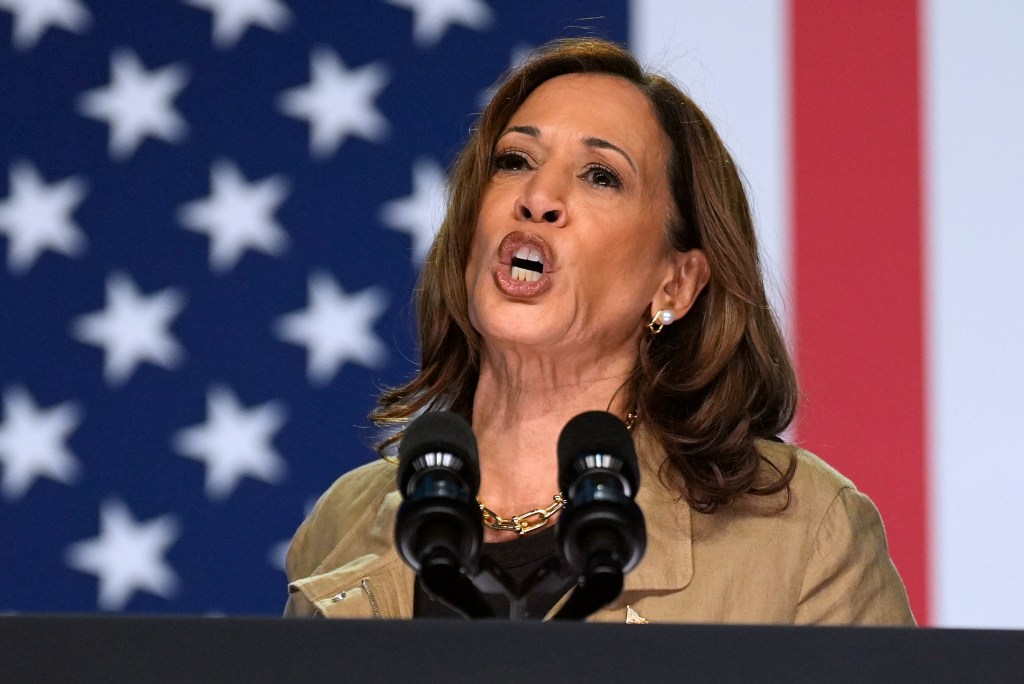A New York Times report on Thursday acknowledged that TV interviews are a major “weakness” for Vice President Kamala Harris.
In a piece titled “Harris has many strengths. Giving interviews is not one of them,” Times national politics reporter Rebecca Davis O’Brien credited Harris for her debating and campaigning skills.
However, she went on to write that “one-on-one television interviews with journalists have long been a weakness in her political arsenal. She often works her way slowly towards an answer, relying on jargon and repetition of phrases, using language that is sometimes derided as ‘word salad’, but which might be better described as meringue.”
Harris has an uneven track record when it comes to unscripted media appearances, which she has largely avoided since becoming the Democratic presidential nominee.
The avoidance was said by O’Brien to be “a calculation of her campaign” to protect her from “the perils of a prime-time spotlight”.
She described “a nervousness that was evident from the moment Ms. Harris took her seat in front of an interviewer, looking like she was bracing for a hostile question – from the witness stand.”
O’Brien pointed to Harris’ time as a prosecutor and on the Senate Judiciary Committee as a culprit, arguing that while those experiences “prepared her to be the one asking the tough questions in high-stakes exchanges; she has had less experience on the other side of the microphone.”
She then cited Dan Morain, a California-based journalist who covered Harris’ career and wrote a biography about him in 2020.
“She can be very attractive, very fast; she’s sharp, she makes a lot of eye contact,” Morain said.
“She was well informed. She knew the issues. She was very good at answering questions and very good at not answering questions.”
He also mentioned that Harris didn’t “go out of her way” to talk to the press and assumed that wouldn’t change, asking, “Why would she risk it?”
O’Brien recalled Harris’ “awkward” interview with NBC anchor Lester Holt about the southern border in 2021, which led him to avoid interviews afterward.
“These days, when Ms. Harris gives an interview, she makes a series of well-rehearsed points, sometimes swimming in a sea of redundant words,” said The Times writer.
“Her first response is often more volatile, a discursive journey to the point at hand. Like all politicians, she sometimes answers the question she would prefer to be asked, rather than the one actually asked – but not always skillfully.”
She added that Harris “tends to cloud clear ideas with words or phrases that don’t have a precise meaning,” recalling an instance where the vice president had “used the word ‘holistic’ three times in the space of a long sentence.” when asked about building more affordable housing.

“It relies on rhetorical touchstones,” O’Brien said, listing a few examples, “”In many ways.” ‘Let’s be clear.’ And when she’s asked about her economic agenda, in particular, she tends to start with a familiar conclusion: ‘I grew up in a middle-class family.'”
The journalist further added that prosecutors are trained to have an approach to questions that is completely different from politicians.
“Prosecutors are not expected, as a mayor or an elected political representative might be, to speak – let alone argue – with the press regularly, and they are limited, by law, in what they can and cannot to share with reporters,” O’Brien wrote.
“While prosecutors in some places, like New York City, tend to engage more openly with the press, that’s not the norm. The power dynamics are also different: reporters are eager for details about a case and may be more inclined to be interested in prosecutors, who hold the secrets and the cards.”
In 2023, “The View” co-host Sunny Hostin also defended Harris’ word salads as a product of her legal training.
“I would add that as a lawyer, you’re generally told when you’re speaking, that you speak in threes, because that’s what people remember,” Hostin said.
“So if you’re going to talk about a car, you talk about the car, the red car, the fast red car.”
#York #Times #report #admits #interviews #weakness #Kamala #Harris
Image Source : nypost.com